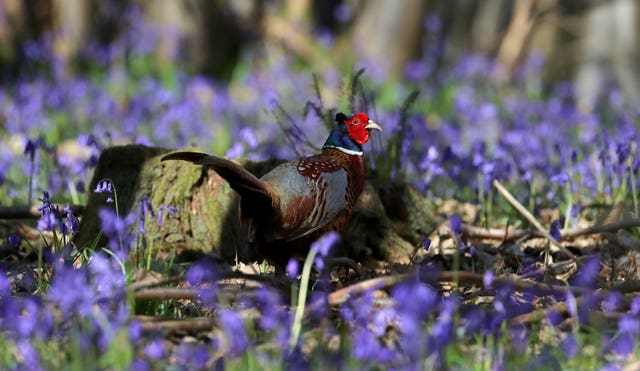Sweeping reforms to the running of the railways will end a “ludicrous” situation where hundreds of officials are involved in working out who is to blame for delays.
Transport Secretary Grant Shapps said 400 people had to debate the issues, with one case revolving around a dispute over the size of a pheasant.
Under the rules at the time, delays from hitting a large bird were the responsibility of Network Rail but striking a smaller one would have been the fault of the train operator.
The review by Mr Shapps, and former British Airways chief executive Keith Williams, will lead to the creation of Great British Railways (GBR) to own and manage rail infrastructure, issue contracts to private firms to run trains, set most fares and timetables, and sell tickets.
Mr Shapps said that would mean “when things go wrong” there is a “fat controller” figure running the network.
“By having that kind of set-up it means you get rid of – in the case of the current set-up – 400 people who have to debate and work out whose fault a delay is at the moment,” he told the BBC.

The Williams-Shapps review said Network Rail and the train companies employ hundreds of “train delay attributors”, to argue with each other about whose fault a delay is.
“Whilst this plays an important role in measuring performance across track and train, it is symptomatic of a misaligned focus on blame, rather than solutions,” the report said.
“Around 40% of delays are disputed, representing significant sums of money, and as a result are debated over through an extensive escalation process, 199-page principles and rules document and an adjudication process overseen by an independently-chaired panel.
“Previous adjudications include, among other things, who was responsible for a train being so crowded that a passenger fainted, causing delays while they were taken off; and whether a pheasant is a small bird (in which case, according to the principles at the time, the train operator was to blame for a delay caused by hitting one) or a large bird (Network Rail’s problem).”
Mr Shapps said “you get into some ludicrous situations” but under the new system “all that nonsense will go, we’ll have a single, simplified organisation running it”.
Expanding on the cases involving birds, Mr Shapps later told MPs: “Trains are expected to withstand say a sparrow or a pigeon or maybe even a smallish duck, but not a swan or a goose.
“But then once the train has collided with said bird it creates an industry for debate, argument and litigation.”





Comments: Our rules
We want our comments to be a lively and valuable part of our community - a place where readers can debate and engage with the most important local issues. The ability to comment on our stories is a privilege, not a right, however, and that privilege may be withdrawn if it is abused or misused.
Please report any comments that break our rules.
Read the rules hereLast Updated:
Report this comment Cancel